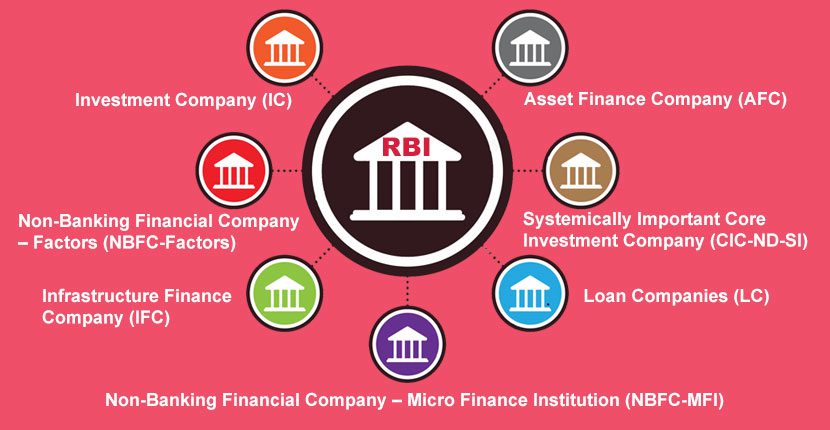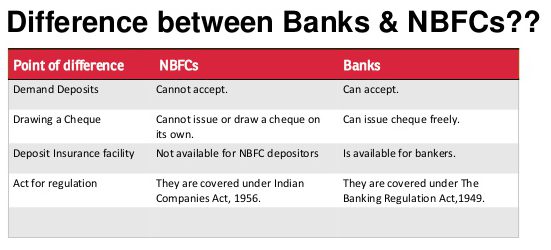NBFCs and Its Components
What is NBFC?
While understanding the basic concept of a non-banking finance company (NBFC), we need to know what an NBFC is.
Legally speaking, a Non-Bank Finance Company (NBFC) is a company registered under the Companies Act 1956 that engages in lending and advances, purchasing shares/stocks/bonds/bonds/bonds/securities issued by government or local government, policy or other similar guarantees, rent, payment, workplace insurance, commercial value, but excluding services of organizations whose main business is agriculture, trade, purchase and sale of goods (excluding securities) or service operation and sale/sale of property.
In layman terms, a non-banking finance company (NBFC) is a financial institution that offers banking services but does not meet the definition of legal bank money, i.e. does not hold a banking license.
Key Features of NBFCs
- NBFCs can accept/extend public deposits for a minimum of 12 months and a maximum of 60 months. They do not accept deposits that are repaid on demand.
- An NBFC will not offer interest above the maximum rate set by the Reserve Bank of India from time to time. Current capacity is 12.5% per year.
- Interest is paid or accumulated no later than the remainder of the month.
- NBFC cannot provide gifts/incentives or other benefits to depositors.
- NBFCs (excluding certain AFCs) must have a minimum investment grade credit.
- Deposits of uninsured NBFCs.
- RBI does not guarantee the repayment of deposits of non-banking banks.
- There are some mandatory explanations for companies in the deposit registration request form from the company.
Abbreviations
AFCs- Asset Finance Companies




Comments
Post a Comment